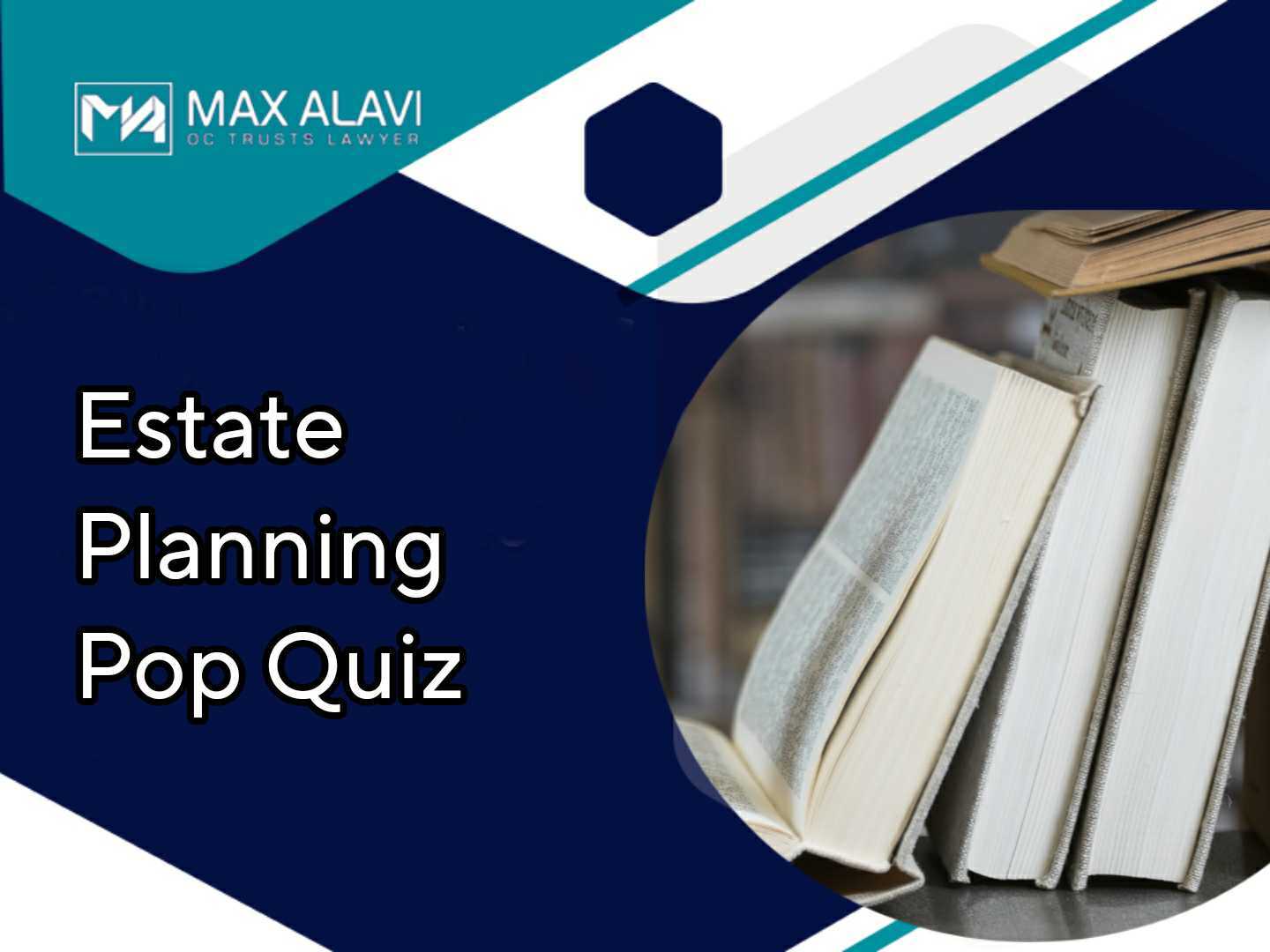How much do you know about estate planning? Take a few minutes to do this estate planning pop quiz, prepared by Max Alavi APC, OC Trusts Lawyer.
It’s Time for an Estate Planning Pop Quiz!
How much do you know about estate planning? Are your assets in order and ready to be distributed upon your death? We invite you to take our estate planning pop quiz to find out.
What is Estate Planning?
First things first: When we talk about estate planning, what exactly are we talking about?
Simply put, estate planning is a legal process in which you declare your wishes for how your assets should be allocated among your heirs and beneficiaries when you die. Estate planning may also involve signaling your wishes for end-of-life care should you become medically incapacitated. And estate planning can denote your wishes for guardianship of your minor children upon your death or incapacitation.
With that definition, let’s get on with the quiz.
Estate Planning Pop Quiz
1) You must name the same person to make financial and medical decisions on your behalf in the event of incapacitation.
True or false?
False. When selecting trusted decision-makers to be listed in your estate, selecting the best people for the job is important. That may mean selecting different people to handle financial and healthcare matters. For example, if you have a close friend or family member who works as an accountant, that person may make sense to make financial decisions, while you may prefer your spouse or an adult child to make decisions about your medical care.
Also, remember that you may sometimes wish to name a hired professional. For example, you may wish your financial decisions to be made by your accountant, bookkeeper, financial planner, or even your estate planning attorney.
2) If you do not create an estate plan, or if your plan fails to meet the needs of your current situation, the state may intervene to make decisions on your behalf.
True or false?
True. Most states, including California, have intestate laws, which denote how assets should be distributed for people who die without valid estate plans. These intestate laws tend to be very one-size-fits-all, meaning everything will go to your surviving spouse or a surviving child.
However, there are myriad reasons why you may not want these people to make decisions or inherit assets, including tax implications, complicated family dynamics, and more. As such, meeting with an estate planning lawyer to review your documents and ensure they fit your current situation is critical.
3) A will accomplishes the same basic goals as a trust and is much cheaper to create.
True or false?
While it’s true that making a will can be less expensive, it’s not true that these documents accomplish the same basic purposes.
Both a will and a trust outline your wishes for asset allocation upon your death, but a will only go into effect when you die. Trusts are effective even in life, so they can be used to help you navigate a season of medical incapacitation.
Additionally, trusts will enable your heirs and beneficiaries to avoid the lengthy, costly, and frustrating probate court process. If you die and only have a will in place, however, your loved ones will likely have to go through this time-consuming legal journey… and there’s a chance the courts will not honor your stated wishes.
As such, your estate planning lawyer will almost surely recommend that you have a trust, not just a will.
Talk with Estate Planning Lawyers in Los Angeles County or Orange County
No matter how you did on the quiz, you can get an A+ estate plan by enlisting the right experts. Max Alavi APC, OC Trusts Lawyer, has a proven track record helping clients navigate estate planning complexities. Schedule a free consultation today.


